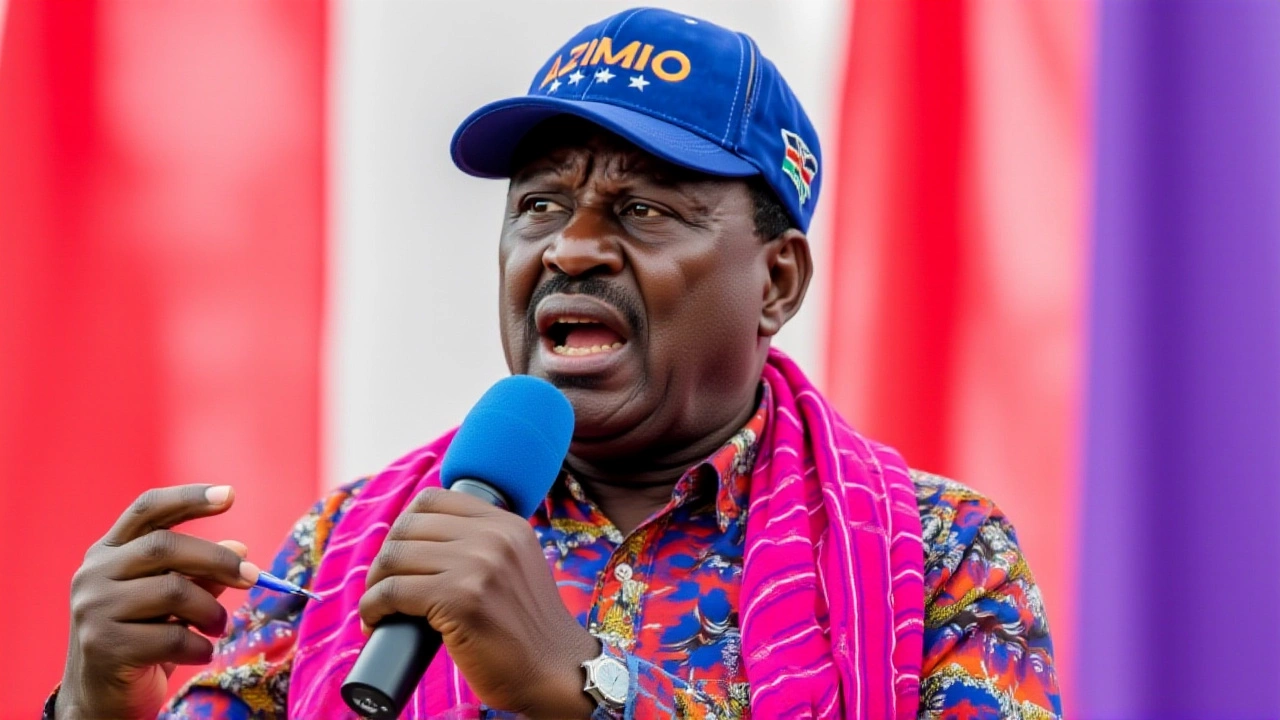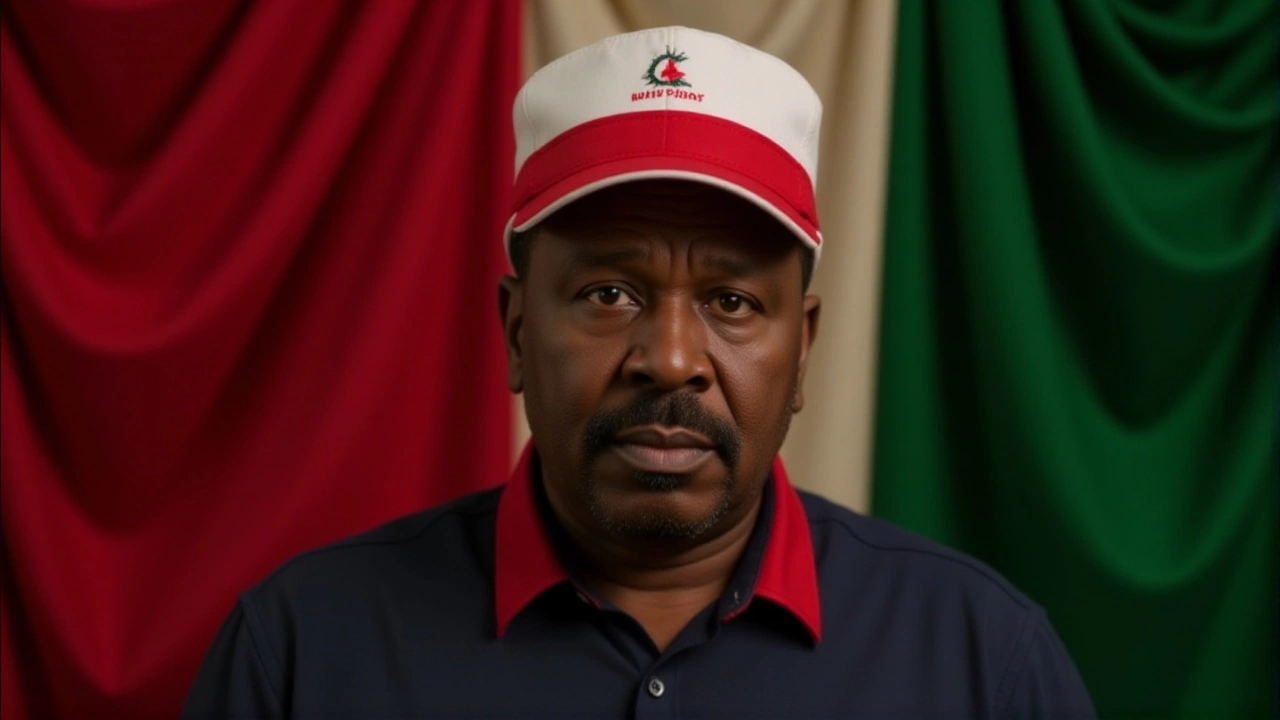When Raila Amolo Odinga, former Prime Minister of Kenya passed away on 15 October 2025, a palpable hush settled over Nairobi’s streets and the country’s parliament alike.
The 80‑year‑old stalwart of Kenyan politics died at 10:46 AM UTC in a traditional Indian Ayurvedic centre in Koothattukulam, Kerala, after suffering a sudden cardiac arrest. Family sources confirmed the news to the BBC, ending a week of speculation that the veteran opposition figure was gravely ill.
Historical Context: From Exile to Power‑Sharing
Odinga’s political odyssey began in the early 1990s, after a six‑year detention under President Daniel arap Moi for championing multi‑party democracy. Upon his release, he re‑entered Kenyan life as the son of Jaramogi Oginga Odinga, Kenya’s first Vice President (1964‑1966). The elder Odinga’s legacy of resistance proved a powerful compass for the younger Raila.
In 1992, he won the Langata parliamentary seat, a constituency he would represent until 2013. Over the next decade, he contested presidential elections five times – 1997, 2007, 2013, 2017, and 2022 – each defeat sharpening his reputation as Kenya’s most persistent challenger.
The watershed moment arrived after the disputed 2007 Kenyan presidential electionKenya. Accusing rival Mwai Kibaki of rigging the vote, Odinga sparked post‑election violence that claimed over 1,100 lives and displaced 600,000 people. International mediation birthed a power‑sharing arrangement, and from April 2008 to April 2013 he served as Prime Minister alongside President Kibaki, overseeing a fragile peace.
Political Career Overview
Odinga’s party affiliations shifted with Kenya’s evolving landscape. He first ran under the National Development Party in 1997, then helped launch the Orange Democratic Movement (ODM) for the 2007 race. By 2022 he was heading the Azimio la Umoja–One Kenya Coalition Party, a broad alliance that fielded his candidacy against William Ruto.
After his 2022 loss, Odinga filed a petition with the Supreme Court of Kenya. The court rejected the challenge, and Odinga publicly pledged to respect the verdict – a gesture that signaled his commitment to constitutionalism despite personal disappointment.
In early 2024, he set his sights on the African Union’s top job, only to be beaten by Mahamoud Ali Youssouf in the February 2025 ballot held in Addis Ababa.
Recent Alliance with President William Ruto
Perhaps the most surprising turn in his twilight years was the rapprochement with William Samoei Ruto, Kenya’s current President. After a bitter 2022 contest, the two men announced a joint parliamentary coordination effort in February 2024, prompting a chorus of both praise and criticism from Odinga’s long‑time supporters.
The partnership, while short‑lived, hinted at a new era of pragmatic politics – a move that could have reshaped the Kenyan opposition landscape had Odinga lived longer.
Reactions and National Mourning
News of his death prompted an outpouring of statements across the continent. Uhuru Kenyatta, former President, described the loss as a "silence that echoes across our nation," while William Samoei Ruto scheduled a nationwide address from Nairobi to honour the former prime minister.
Opposition parties, civil‑society groups, and even the Indian Ayurvedic centre’s staff released statements acknowledging Odinga’s commitment to peaceful resolution and his lifelong advocacy for democratic reforms.
State funeral arrangements are expected to follow, with many analysts predicting full military honors, given his decades of public service.

Implications for Kenyan Politics
Odinga’s departure creates a leadership vacuum in the opposition camp. His son, Oburu Odinga, and former deputy, Martha Karua, have hinted at possible succession plans, but no definitive heir has emerged.
The recent Ruto‑Odinga alliance had already begun to blur partisan lines. Without Odinga’s moderating presence, the coalition may either dissolve or evolve under new stewardship, potentially reshaping legislative dynamics ahead of the 2027 general elections.
International observers see his death as a reminder of Kenya’s fragile democratic equilibrium, especially as the country grapples with economic challenges and regional security concerns.
What Comes Next: Succession, Legacy, and the Road Ahead
Funeral proceedings are slated for early November, with nationwide moments of silence and a possible inter‑faith service reflecting Odinga’s diverse support base. The government will likely confer the Grand Medal of Honour, a distinction reserved for those who have rendered “exceptional service to the nation.”
Beyond ceremonial duties, scholars anticipate a surge in biographies and academic papers dissecting Odinga’s role in the 2007 crisis, his stewardship during the power‑sharing era, and his relentless push for electoral reform.
For ordinary Kenyans, the loss feels personal: a man who, despite repeated defeats, kept returning to the ballot box as a promise that democracy can be contested, not given.
Key Facts
- Death: 15 Oct 2025, 10:46 AM UTC, Koothattukulam, Kerala, India
- Age: 80
- Former roles: Prime Minister (2008‑2013), MP for Langata (1992‑2013)
- Party leadership: Azimio la Umoja–One Kenya Coalition Party
- Last political move: Alliance with President William Samoei Ruto in 2024
Frequently Asked Questions
How will Raila Odinga’s death affect the opposition’s strategy?
With Odinga gone, the opposition will need to consolidate under new leadership. Figures like Oburu Odinga and Martha Karua are being mentioned, but none have yet commanded the same nationwide appeal. The void may push the coalition to either fragment or coalesce around a fresh, perhaps younger, face before the 2027 elections.
What were the circumstances of his passing in India?
Odinga had been receiving Ayurvedic treatment at a clinic in Koothattukulam for several weeks. On the morning of 15 October, he suffered a cardiac arrest and could not be revived despite emergency efforts.
Will the Kenyan government grant him a state funeral?
All indications point to a state funeral with full military honors. The president’s upcoming address from Nairobi is expected to announce the official program and confirm the honors.
How did Odinga’s alliance with President Ruto change Kenyan politics?
The 2024 partnership signaled a shift from adversarial to collaborative politics, especially in Parliament where both parties coordinated voting. Critics argued it betrayed Odinga’s base, while supporters saw it as a pragmatic step toward national stability.
What legacy does Raila Odinga leave for future Kenyan leaders?
He leaves a blueprint of relentless electoral challenge, a commitment to power‑sharing solutions, and an enduring belief that opposition can be a force for democratic deepening. His life story will likely become a textbook case in Kenyan political science courses.
